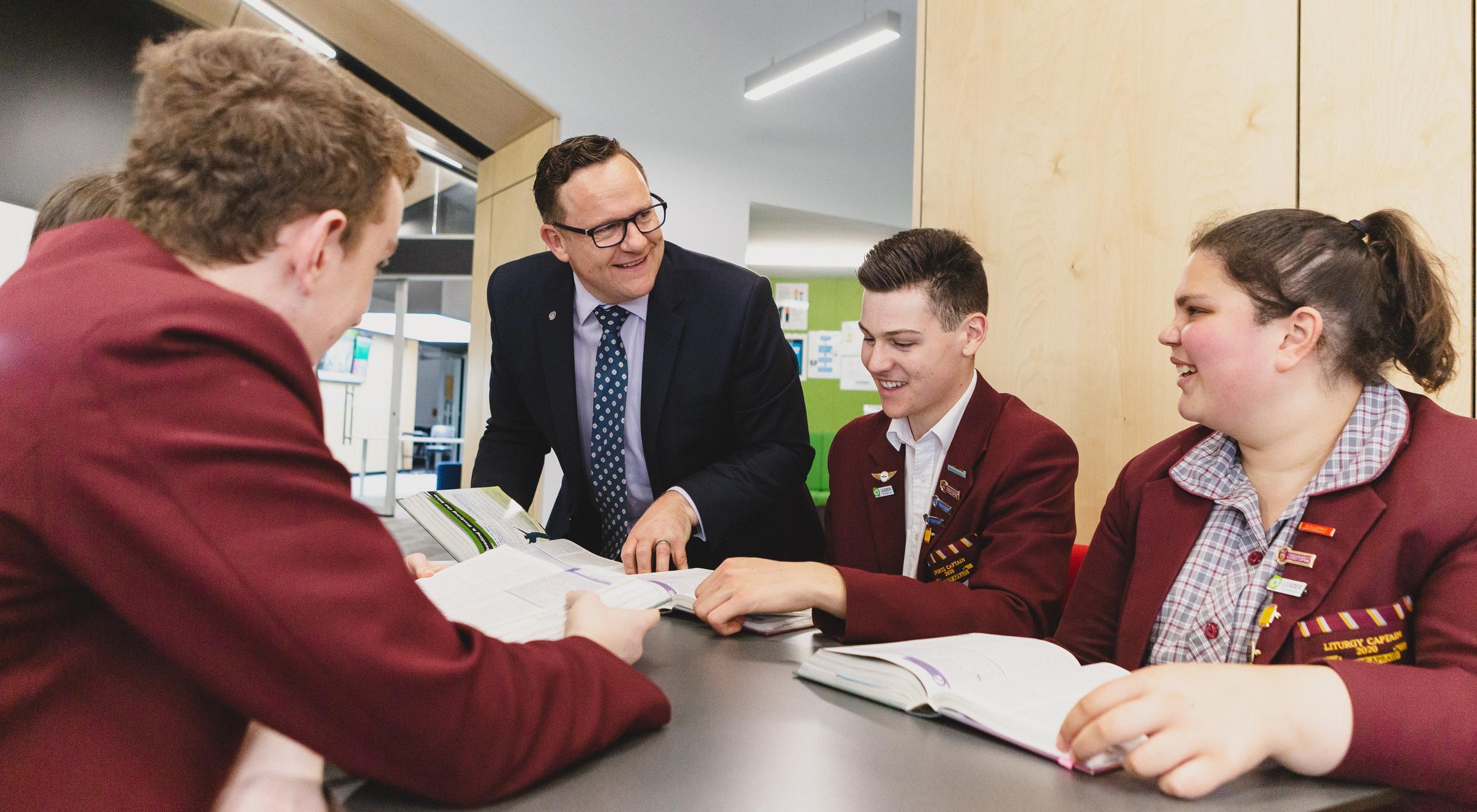Cranbourne Campus News

Freeze, Flight, Fight or Flock
Recently I read an article that spoke in general terms about some of the stress responses that can happen in our brains when faced with uncertainty and impending chaos (much like we are now in this Stage 4 Isolation). While by no means a psychologist, my Masters study in Student Wellbeing had introduced me to the responses of “freeze”, of “flight” and of “fight” but this time I was introduced to a more recent response, being to “flock.” When responding to stress, some people can freeze and be caught in a kind of paralysis where they are not able to move forward nor back, others have a flight response where they try to escape the challenge or stress that lays before them by burying their heads in the sand and hoping that it will go away, while others when faced with stress, get angry with everyone and everything and their response is to ‘fight’ the potential threat.
The notion of the ‘flock’ response, revolves around the idea of people who are able to use “relationship resourced resilience” where, as the psychologist Ebersohn suggested in 2012, a positive adjustment to the stress (such as COVID and ISO) can be achieved by flocking together, making connections and using the solidarity of the community to move from an unhealthy level of fragility, to a sense of resilience borne of the feeling that “together we can support each other to get through this”. Furthermore David Vinegard, the Educational Behaviour specialist suggests that it is through what he calls the Five Cs that we are able to support the community to achieve a flock response at this time and to be able to promote healthy relationships. The Five C’s refer to;
Connection – a sense of belonging, seeing each other’s faces in a zoom lesson, getting into dialogue with a teacher and class mates, making sure the dinner meal is had together and away from distractions like the TV, playing a family board game;
Calmness – being able to respond rather than react, things such as mindfulness or journaling, ensuring brain breaks during a remote school day;
Cohesion – making sure that the language you use is outward thinking; more about us and less about me can give an enhanced feeling of the tapestry of togetherness;
Consistency – good healthy routines in the home, structure and support, communication and clear expectations that are set in the remote learning space – knowing when to turn on and when to turn off, can be very important;
Consult – teachers allowing opportunities in the virtual classroom for student voice and choice and families also allowing the young people elements of control in this remote learning/home place and space.
At St. Peter’s College we have sought to embed these opportunities for healthy connections. We have sought to support a flock response in our language and action and in particularly through the recently formed “Student Wellbeing SPACE page”. Not only are there the usual links to agencies like Beyond Blue and Headspace, that can assist those struggling to manage with the emotional and psychological parts of our current situation, but there are also opportunities for student voice, chances for a laugh to help pump up dopamine levels, advice for healthy eating and sleep hygiene as well as a myriad of other chances for students to appreciate that we are in this together; that we are not alone and that by flocking together as a response to this challenge. We can strengthen this St. Peter’s College community even while we are ‘staying apart’. This is a SPACE page for the students and by the students – I encourage you to have the young person in your house to check it out and get involved. Much like our Iso Challenges of Remote Schooling 1.0, this is all about encouraging a positive and healthy mindset, especially when under pressure.
Mr Jeremy Wright
Deputy Principal - Head of Cranbourne Campus
